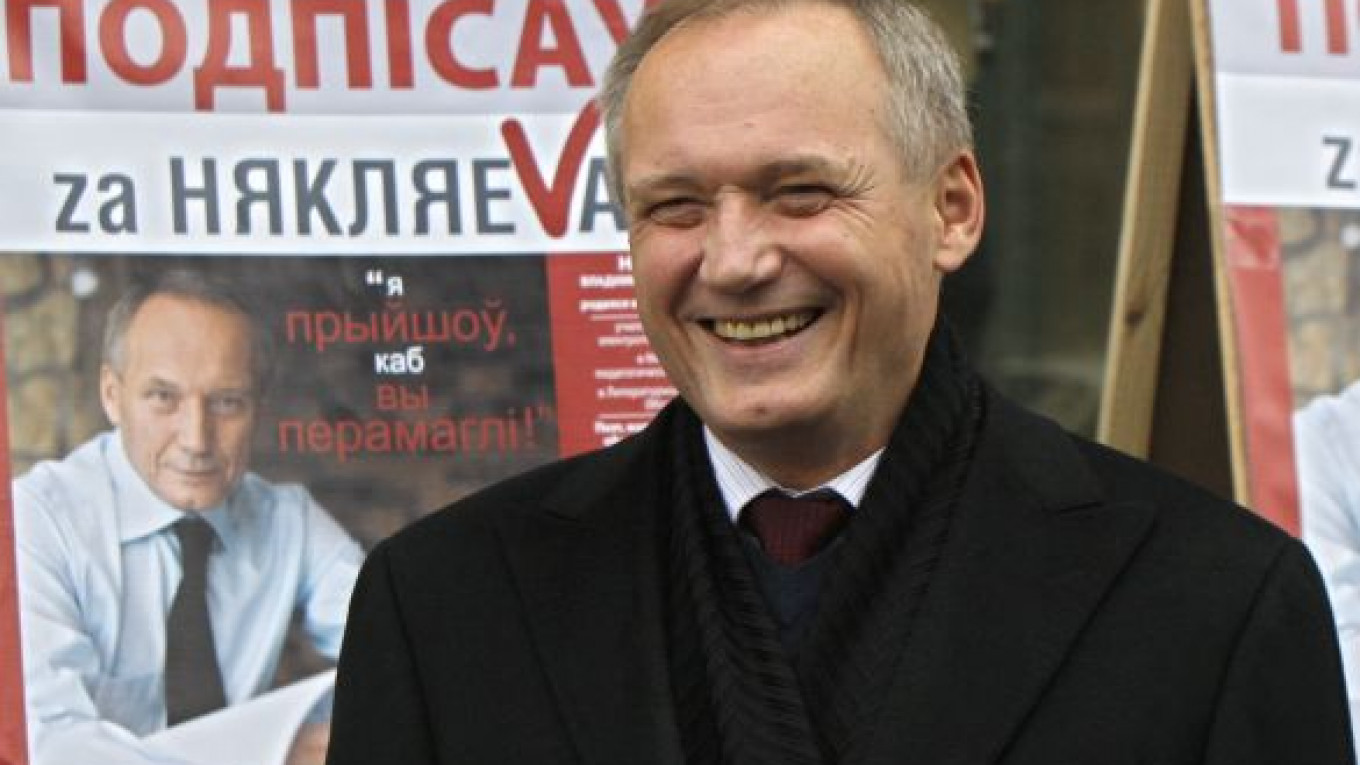Belarus, defying the West, will on Thursday start the trials of protesters rounded up last December at rallies against President Alexander Lukashenko's re-election.
The United States and the European Union have imposed sanctions on the republic in response to the police crackdown on protests over the Dec. 19 vote, which the political opposition and international monitors denounced as fraudulent.
They have called on Lukashenko, in power since 1994, to free those detained.
But Belarus authorities said a Minsk district court would on Thursday begin hearing the case of Vasily Parfenkov, one of about 30 people rounded up, including four opposition candidates who ran against Lukashenko in the vote.
A court official confirmed the trial date to Reuters. "There will be a court session on Thursday," he said.
Parfenkov, who worked at the campaign headquarters of main opposition candidate Vladimir Neklyayev, faces a charge of participating in mass unrest.
The charge carries a maximum sentence of 8 years in jail. It was not clear how long the trial might last.
The December crackdown on the Minsk rally, followed by a police sweep of opposition offices and apartments which went on for weeks, ended signs of a thaw between Lukashenko and the West that had held out the prospect of financial aid for Belarus if democratic rights improved.
Belarus is an important transit route for Russian energy to Europe while Moscow sees it as a buffer between it and NATO. Lukashenko has taken advantage of this to win pledges of aid and investment from both sides needed to keep the economy afloat.
Under renewed Western sanctions, Lukashenko and more than 150 officials, including some seen as involved in the post-election clampdown, will be barred from visiting the 27 EU states. A list of people affected by an EU asset freeze was also extended.
EU heavyweight Germany and five Central European countries, meeting in Bratislava, Slovakia, on Tuesday again called on Belarus to release all political prisoners and halt political repression.
Presidential candidates who are still being held include Andrei Sannikov of the "For the European Belarus" movement. Neklyayev, a 64-year-old poet and head of the "Tell the Truth" movement, was provisionally released on Jan. 29 but is being held under house arrest and could still be tried.
It was not clear when Sannikov, Neklyayev and other presidential candidates being held would come to trial.
The way in which the court deals with Parfenkov will set the tone for trials that follow and could send a political signal of either defiance or reconciliation by Lukashenko, analysts said.
"There is no doubt the trials will be carbon copies of each other and the judges will simply have walk-on parts," Ales Belyatski, head of the human rights Vesna (Spring) 96 web site, told Reuters.
Belyatski drew parallels with "show-trials" under Soviet dictator Josef Stalin.
"Many people in jail have undergone strong psychological pressure and blackmail. I won't be surprised that in some trials we will hear evidence from the accused like we did in the Stalinist period when people confessed their guilt and repented for what they had done," he said.
A Message from The Moscow Times:
Dear readers,
We are facing unprecedented challenges. Russia's Prosecutor General's Office has designated The Moscow Times as an "undesirable" organization, criminalizing our work and putting our staff at risk of prosecution. This follows our earlier unjust labeling as a "foreign agent."
These actions are direct attempts to silence independent journalism in Russia. The authorities claim our work "discredits the decisions of the Russian leadership." We see things differently: we strive to provide accurate, unbiased reporting on Russia.
We, the journalists of The Moscow Times, refuse to be silenced. But to continue our work, we need your help.
Your support, no matter how small, makes a world of difference. If you can, please support us monthly starting from just $2. It's quick to set up, and every contribution makes a significant impact.
By supporting The Moscow Times, you're defending open, independent journalism in the face of repression. Thank you for standing with us.
Remind me later.






